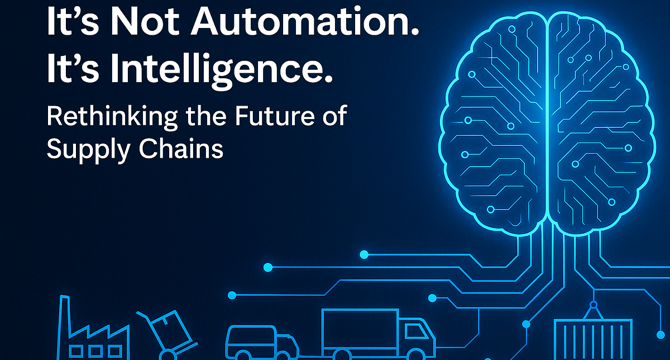Medium
4w
49

Image Credit: Medium
The Future of AI-Driven Supply Chains
- AI is reshaping forecasting, procurement, logistics, and warehouse operations in supply chains, moving towards fully autonomous systems.
- Supply chain management ensures products reach customers efficiently, balancing supply, demand, cost, and efficiency.
- Challenges in supply chain management include forecasting inaccuracies, supply disruptions, high inventory costs, slow logistics, and limited visibility.
- Events like the COVID-19 pandemic, the Suez Canal blockage, and severe weather storms have highlighted supply chain vulnerabilities.
- AI enhances demand forecasting, procurement decisions, warehousing optimization, logistics efficiency, and reverse logistics in supply chains.
- AI-driven supply chains transition from reactive to proactive, anticipating disruptions and making real-time adjustments for cost savings and efficiency.
- Companies like Amazon, Walmart, and Tesla are leveraging AI for predictive decision-making and process optimization in their supply chains.
- The future holds fully autonomous supply chains driven by AI, offering agile, resilient, and customer-centric operations.
- Businesses embracing AI-driven automation now will gain a competitive edge in creating efficient supply chains.
- The transformation towards fully autonomous supply chains with AI technology is already underway, shaping the future of supply chain management.
Read Full Article
2 Likes
For uninterrupted reading, download the app